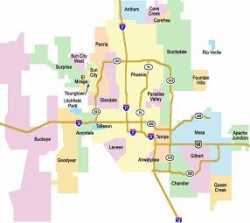Phoenix Lockmaster conducted a survey of 1,500 Americans assessing thoughts and opinions on public safety and national security measures. The goal of the survey was to measure public sentiment on security-related issues during this election year. Below is a graphical and a textual summary of the survey data and findings.

Here is what we learned about Americans’ feelings on public security issues:
38% of Americans feel that terrorism/Isis are the number one safety concern.
The top answer (by a large margin) indicated that Isis and terrorism are biggest threat to their safety and should be the top concern of our government officials.
Women are slightly more concerned by crime, whereas men are slightly more concerned by hostile foreign countries.
Crime was the top concern of 18% of women but only 16% of men. While data shows that men are victimized by crime more often, public perception tends to hold women as more vulnerable to crime which may explain our survey findings. Hostile foreign countries were the top concern for 12% of men but only 6% of women, meaning men are twice as likely to choose hostile foreign countries as their top concern.
Older people are more likely to be concerned by terrorism, while younger people are more likely to be concerned by climate change.
Climate change is something that has more recently been a public concern, so for many older people the threat of terrorism is much more prevalent and real than concerns over global-warming, which is still a hotly debated topic in the political arena. In our survey, 18-24 year olds were nearly twice as likely as 45+ year olds to mark climate change as their top concern.
Surveillance cameras and airport security measures have moderate support from the American public.
From the survey results, 41% of the respondents indicated that they are comfortable with security cameras, another 41% said they are comfortable with heightened airport security measures, and 27% support a national ID card. Only 8% support stop and frisk police tactics. Government monitoring of bank accounts and personal emails had the lowest support coming in at 7% and 4%, respectively. Interestingly enough, 37% of respondents said they were not comfortable with any of the listed security measures.
Women are significantly more likely to support public security measures than men.
While both genders show little support for monitoring of emails and bank accounts, women were significantly more likely to support cameras, airport security, and ID cards:
- 48% of women support surveillance cameras (vs. 40% of men)
- 47% of women support airport security (vs. 39% of men)
- 33% of women support a national id card (vs. 25% of men)
Americans give the government a 5.3/10 star rating for keeping America safe.
The federal government gets a decidedly lukewarm rating from its citizens in the area of security, and 13% felt that the government was doing a “very poor” job of keeping Americans safe.
Women and lower income respondents gave the government a lower rating.
Perhaps indicating a greater feeling of danger or greater dissatisfaction with current efforts, women and lower income respondents gave the government a lower rating on security.

 We serve the entire Phoenix area, including
We serve the entire Phoenix area, including  We accept Cash, Checks and Major Credit Cards.
We accept Cash, Checks and Major Credit Cards.